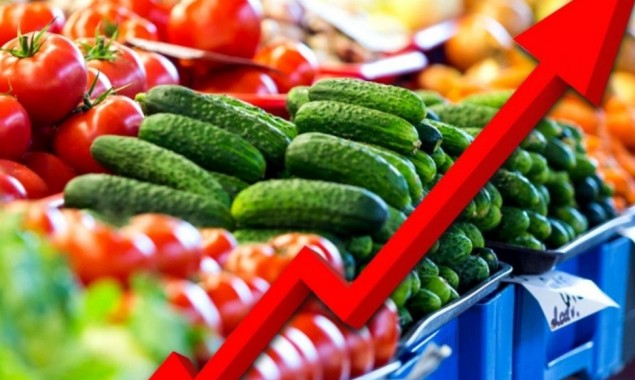
Photo: File
KARACHI: Food manufacturers plan to pass-on the rising cost to the consumers to sustain the margins, which would translate into a 10 per cent price hike in FY22.
AKD Securities Ltd organised a Pakistan listed food manufacturing conference, which was attended by leading local food manufacturers.
The companies attending the event said they need to pass-on the costs to the consumers to sustain the margins in the long-term. In the past, the local food manufacturers have raised their prices in line with the food inflation and expect to increase their prices by 8 per cent to 10 per cent in FY22 owing to the rising costs.
The companies reported that the local unregistered companies and their manufacturing of unregulated products were denting the sales of registered companies. These goods are in high demand due to the rising prices of regulated products produced by the registered companies.
In addition, the companies attending the conference blamed the relaxed legal system in the country for several counterfeited products, which remain a constant challenge.
The State Bank of Pakistan in a report noted that a number of the new entrants in the processed food industry belonged to the informal sector, which is largely undocumented and under-taxed. The food items produced by these firms are cheaper also because of the low quality and; hence, pose a major challenge to larger firms in the formal sector who invest heavily in innovation to make their product differ significantly from those currently in the market and on aggressive media campaigns to convince the potential customers to buy their products.
The entire process of product development and marketing is capital intensive. However, inadequate protection through patents and trademarks allows small manufacturers to easily copy the label and packaging of the branded products.
Such counterfeit products generally offer high margins to retailers, especially in small shops in villages. Thus, making R&D investment in the presence of free riders becomes quite challenging.
While large players are in a better position to integrate all stages of the production process, i.e., from primary production to retail sales, smaller players focus more on improving the effectiveness of their supply chain through improved coordination.
In this context, adopting minimum quality standards at each stage of the process helps in better integration of the supply chain, the SBP report observed, adding that the implementation of globally recognised food safety and quality standards also opens up the export market in developed countries.
The higher demand and increased cost of agriculture due to withdrawal of subsidies on energy and agricultural inputs plus some supply constraints have kept food inflation up and continue to do so.
With the rupee depreciation against the dollar, the food inflation in the country is on the rise. A report by the Pakistan Bureau of Statistics (SBP) noted that the national Consumer Price Indicator (CPI) of food items for September rose up to 158.85 per cent from 152.71 per cent in August, showing a growth of 4.02 per cent,
The non-perishable and perishable food items rise to 4.13 per cent and 3.35 per cent, respectively. The chicken price rises to 42.04 per cent; onions, 32.49 per cent; pulse masoor, 15.70 per cent; eggs, 14.43 per cent; and wheat flour 9.69 per cent.
The food inflation rose in the country, as it witnessed a huge trade deficit of $3.954 billion in 2020/21 between July 2020 and June 2021, up from just $817 million in 2019/20 and $1.061 billion in 2018/19, respectively, forcing the government to cut subsidies on various commodities and further ban the exports of others, a report by the Pakistan Bureau of Statistics (PBS) revealed.
In FY21, Pakistan’s food basket exports stood at $4.393 billion against $4.361 billion over the last year, indicating a growth of 0.74 per cent. Of these, over $2 billion came from the rice exports, while the remaining were of other food items.
In August, the government moved to ban export of perishable food items such as tomatoes and onions for three months to curb food inflation and to ensure the availability of such commodities at an affordable price to the consumers.
In July-August of this fiscal year, Pakistan’s deficit skyrocketed to around $7.5 billion due to huge amount of imports.
Pakistan imported 57,000 tonnes of wheat in the first two months of the current fiscal year against 39,348 tonnes imported last year, showing an increase of 44.86 per cent.
During the nine months of the last year, the government had imported 3.612 million tonnes of wheat worth $983.326 million.
The rise in the global food commodities and petroleum prices due to the Covid-19 pandemic has affected the prices of essential food items worldwide. The continuous increase in the international food prices is affecting the domestic prices, as Pakistan is a net importer of staple food items, wheat, sugar, edible oil and pulses.
Besides exports, sugar, wheat, wheat flour, and unpreserved goods are also being smuggled to Afghanistan.
Catch all the Business News, Breaking News Event and Latest News Updates on The BOL News
Download The BOL News App to get the Daily News Update & Follow us on Google News.




